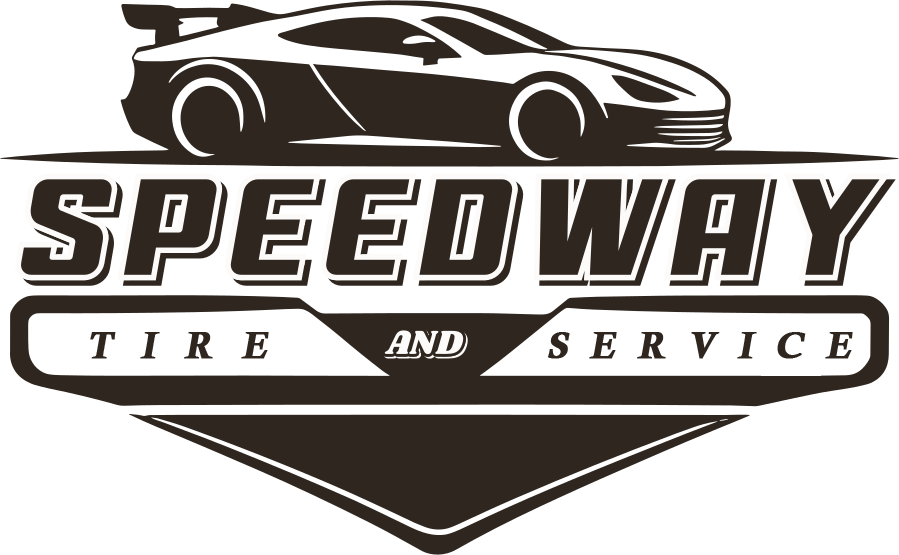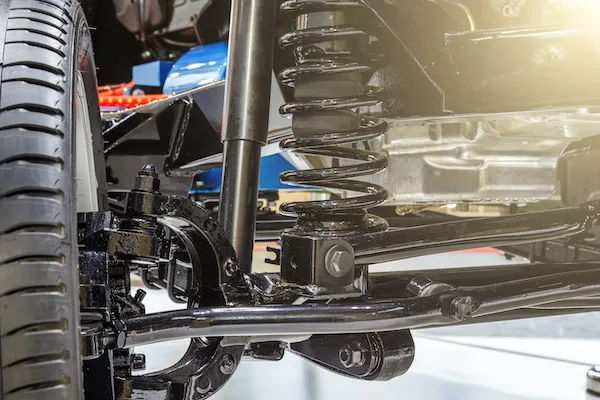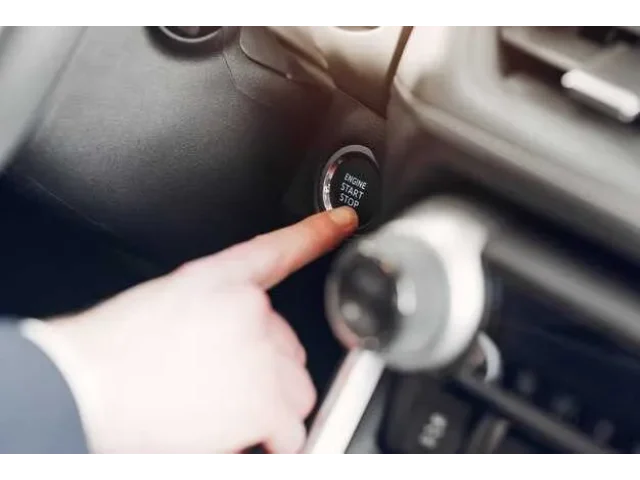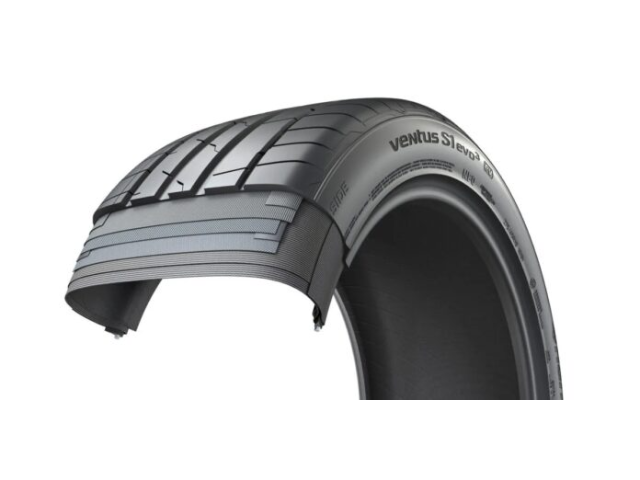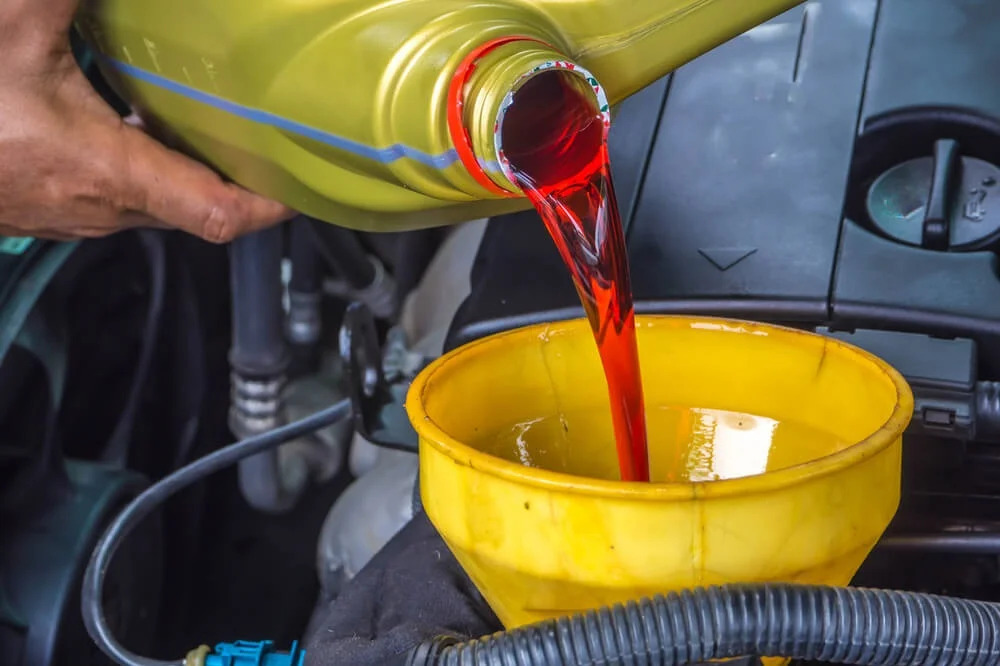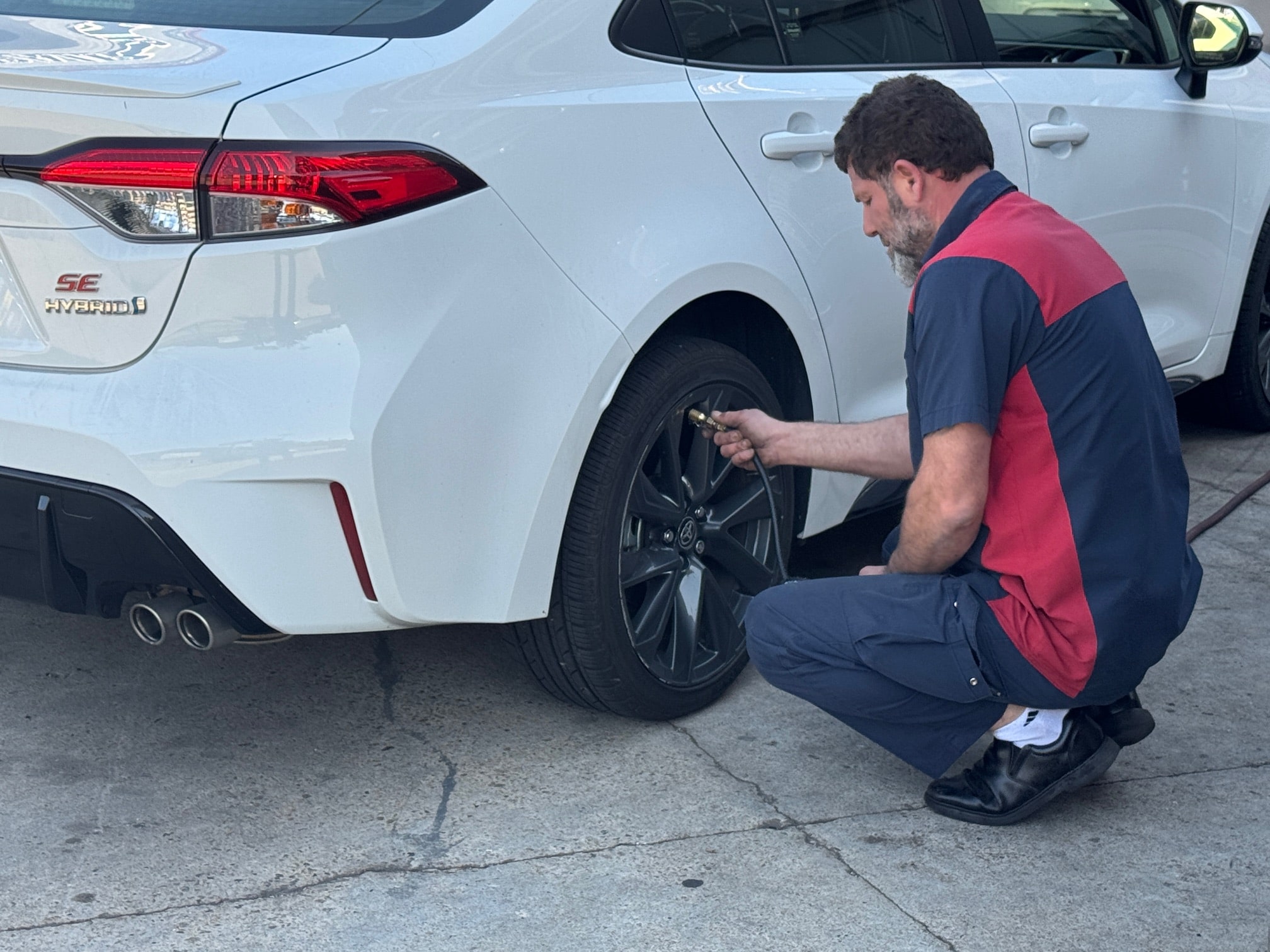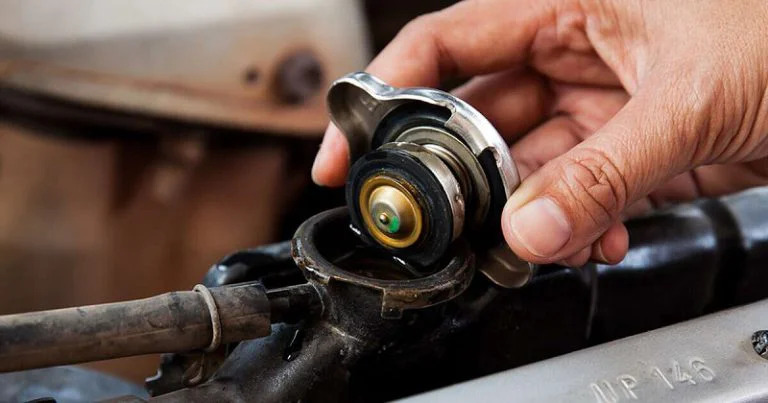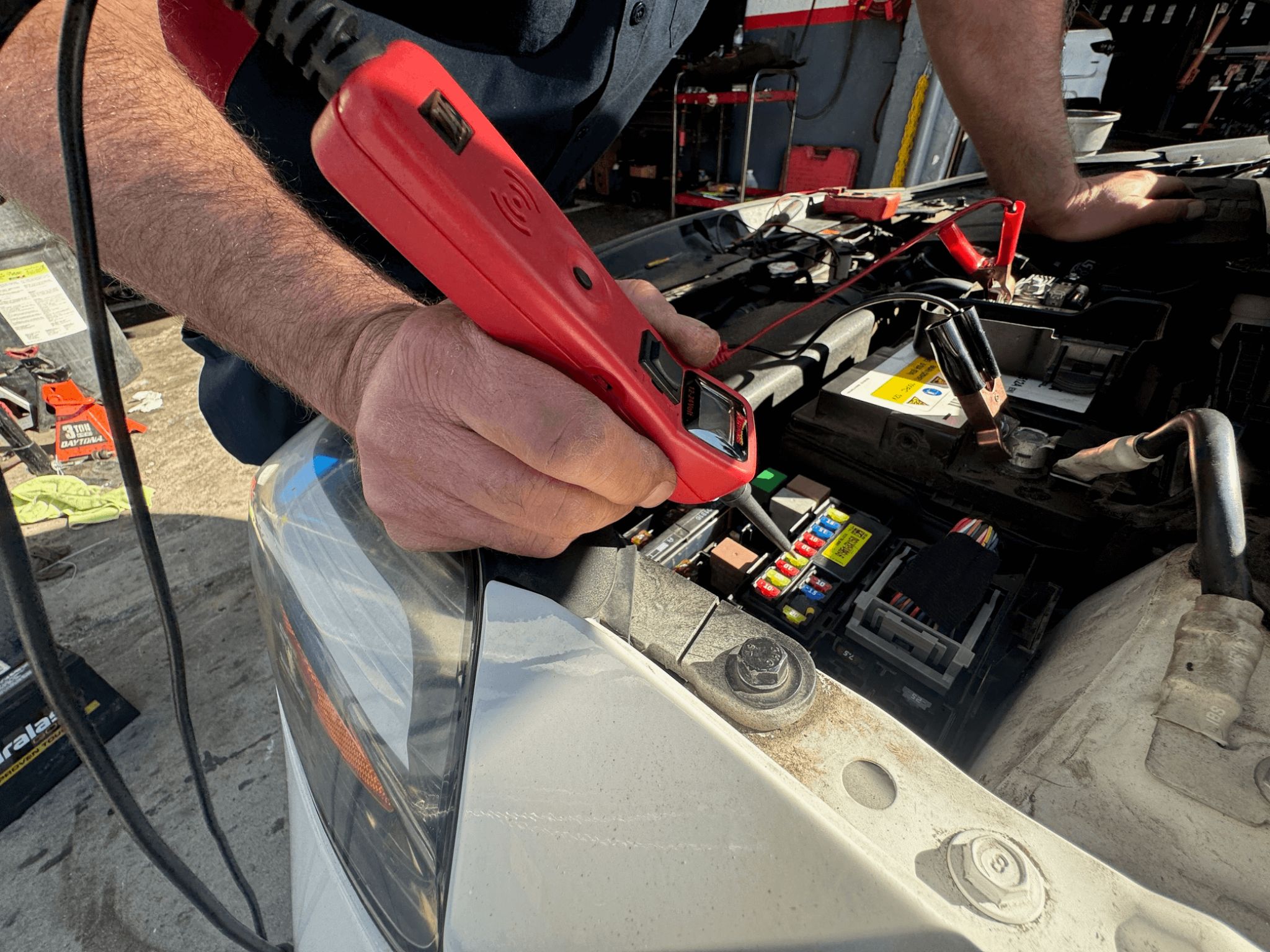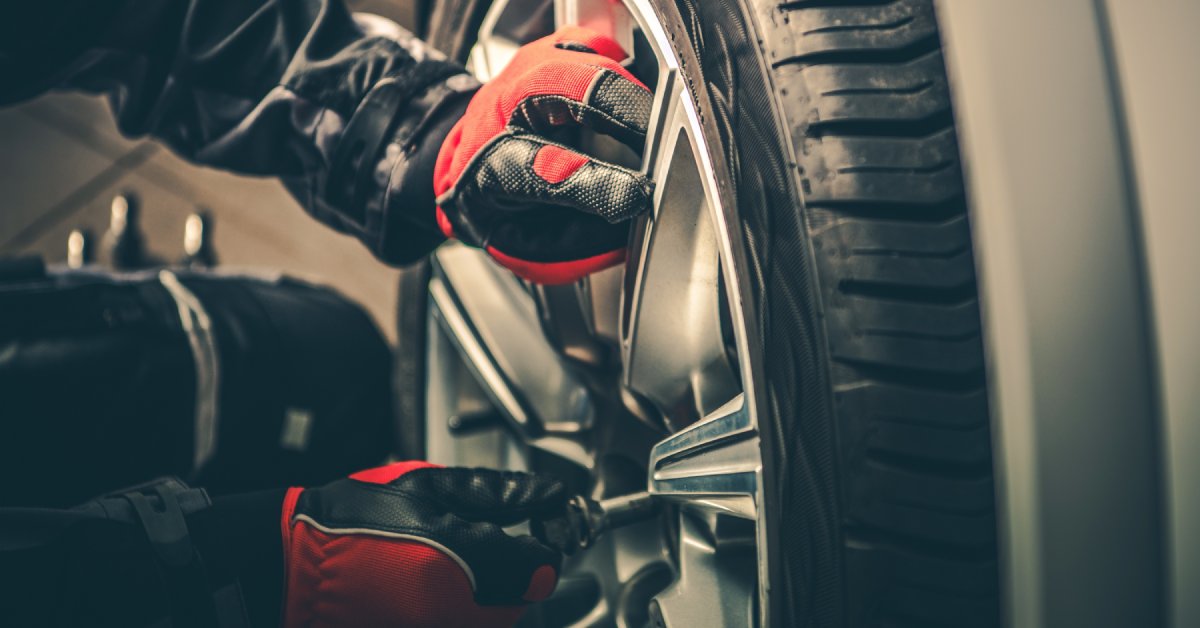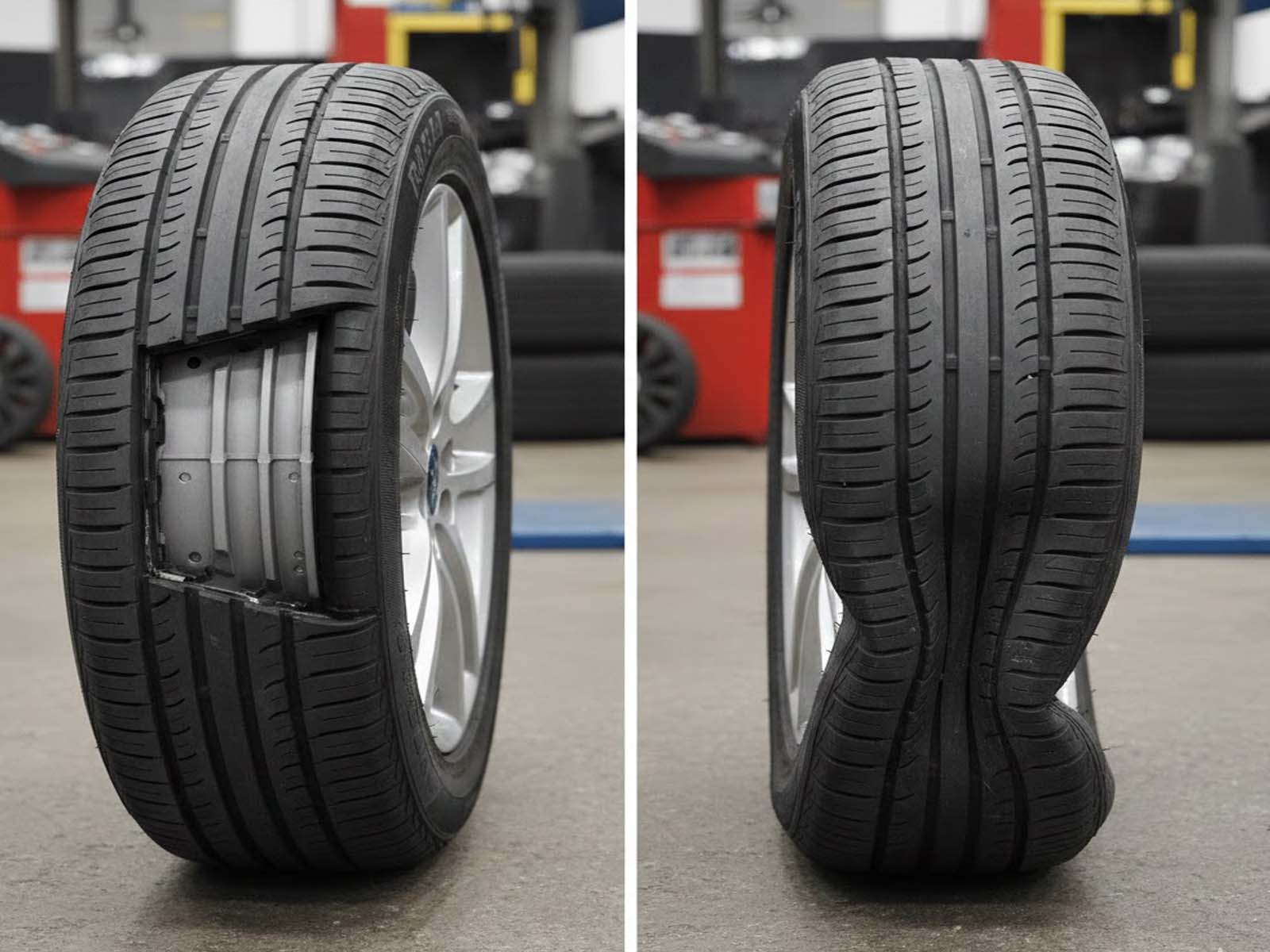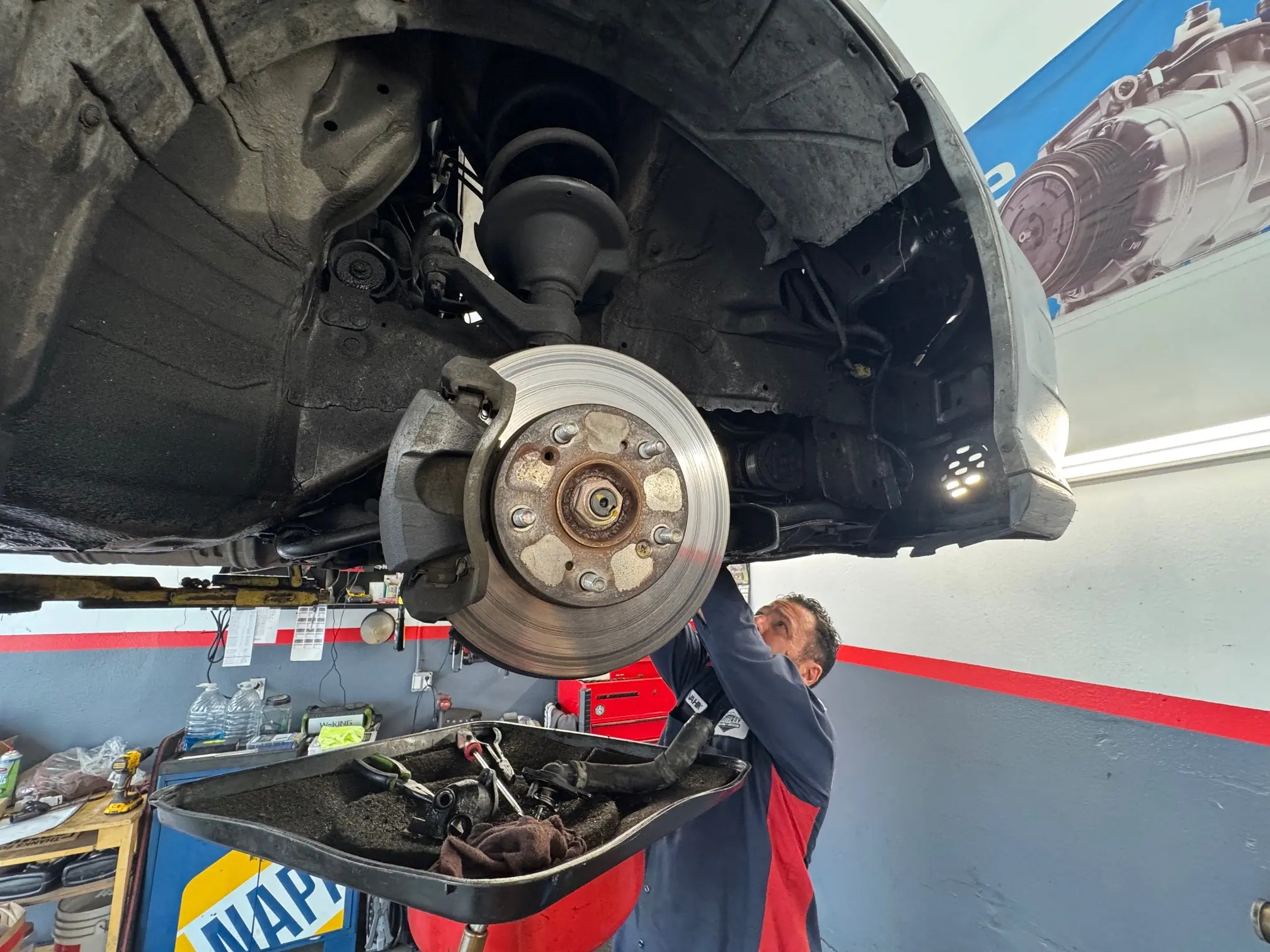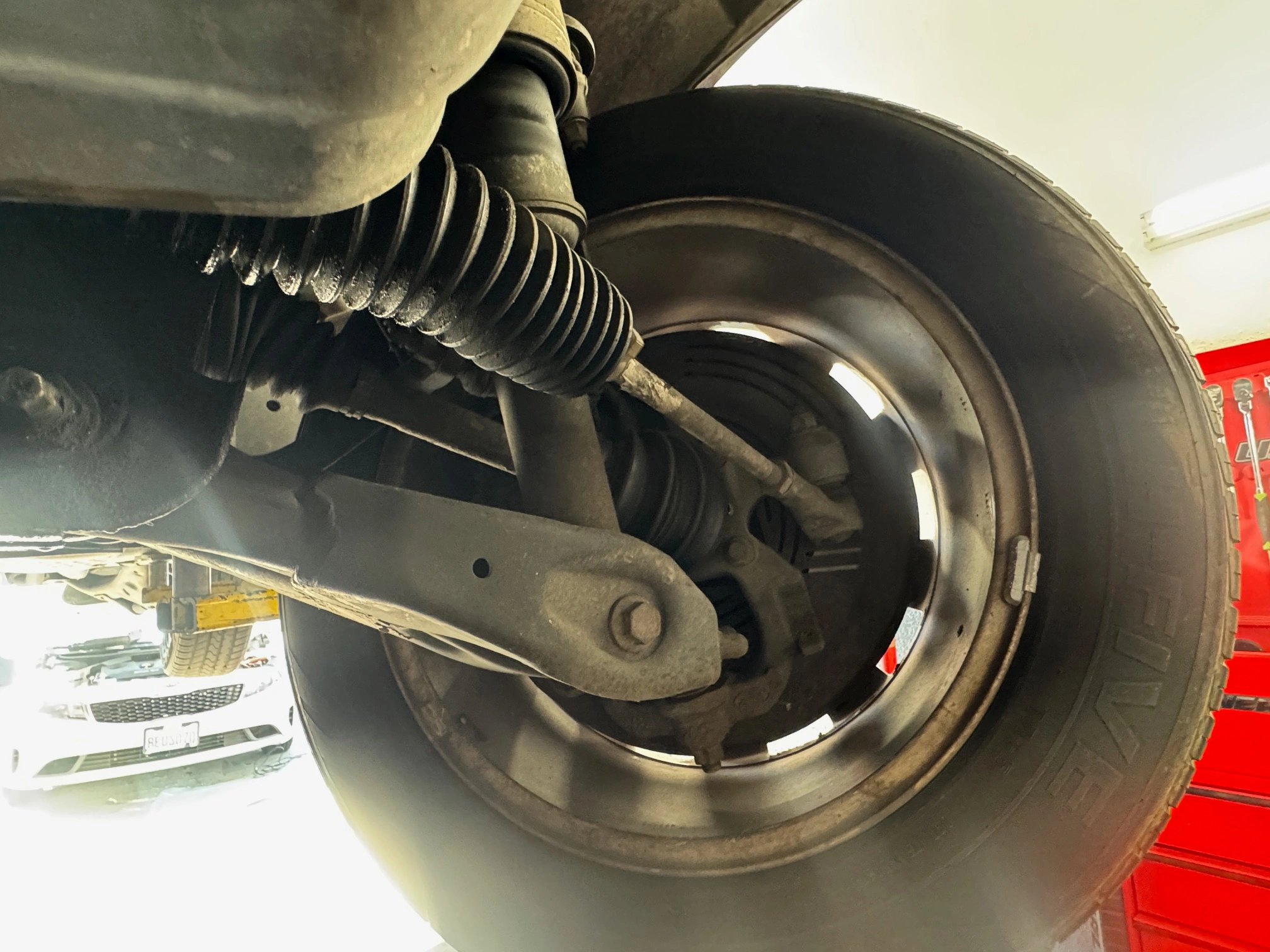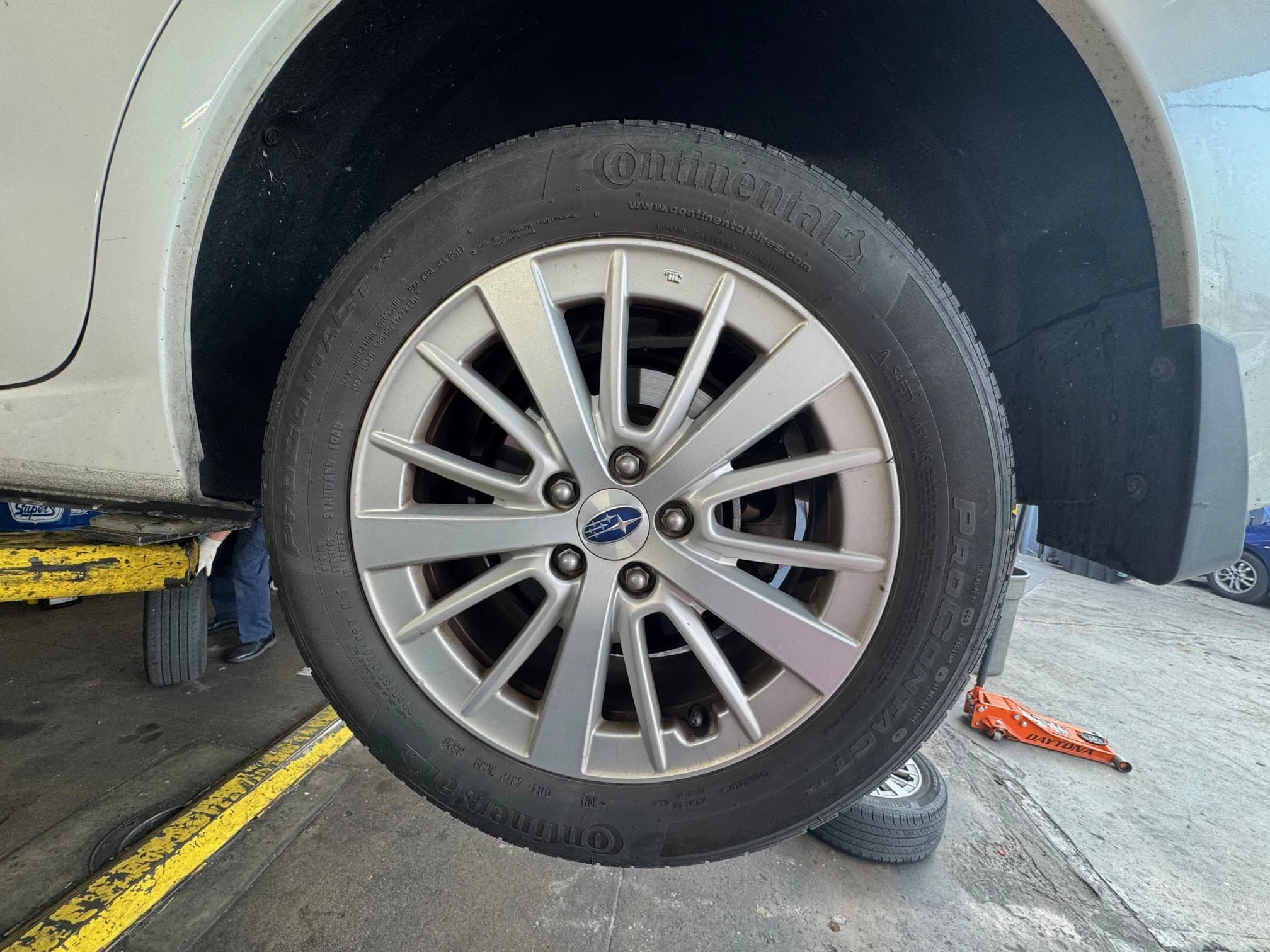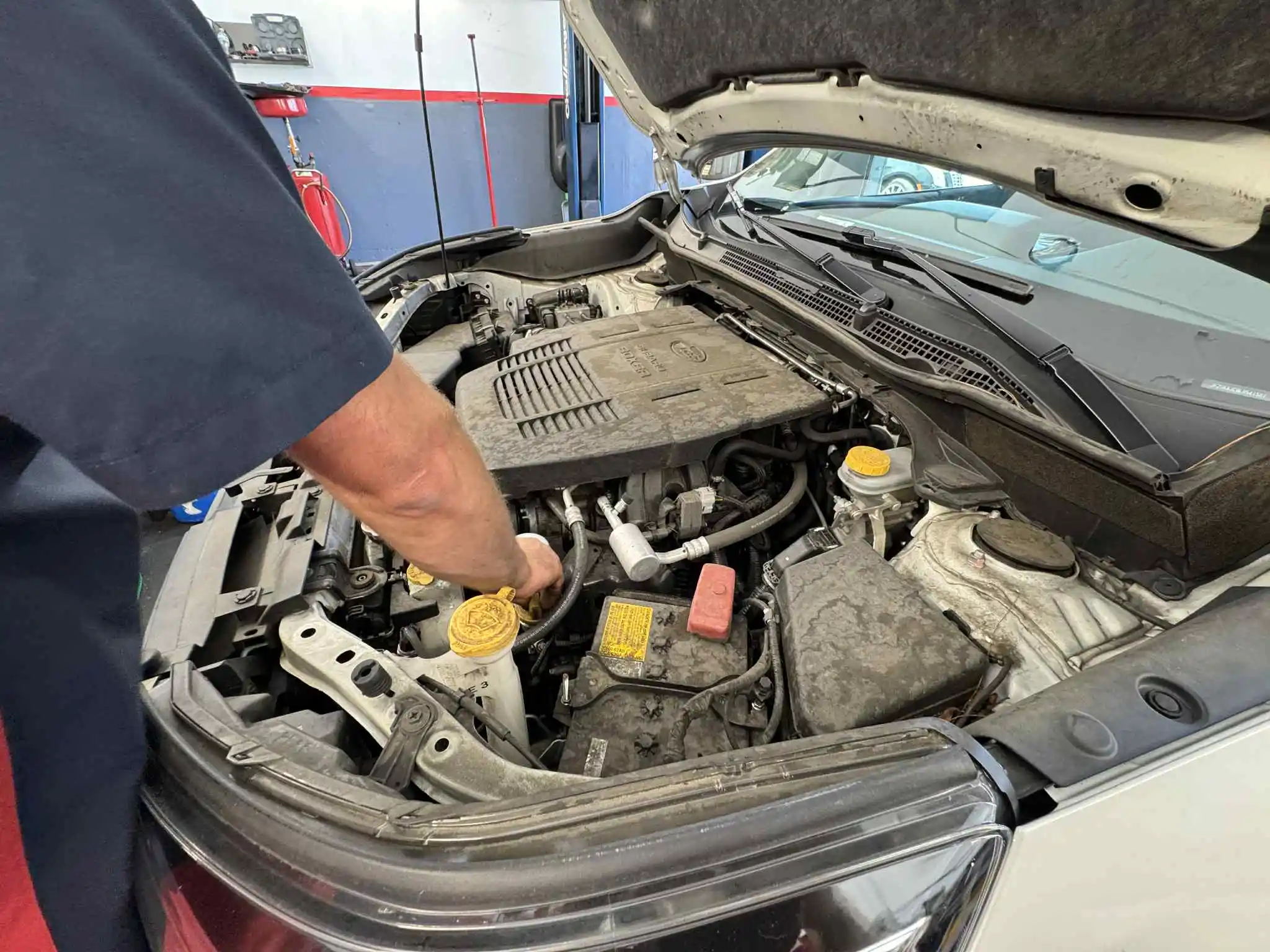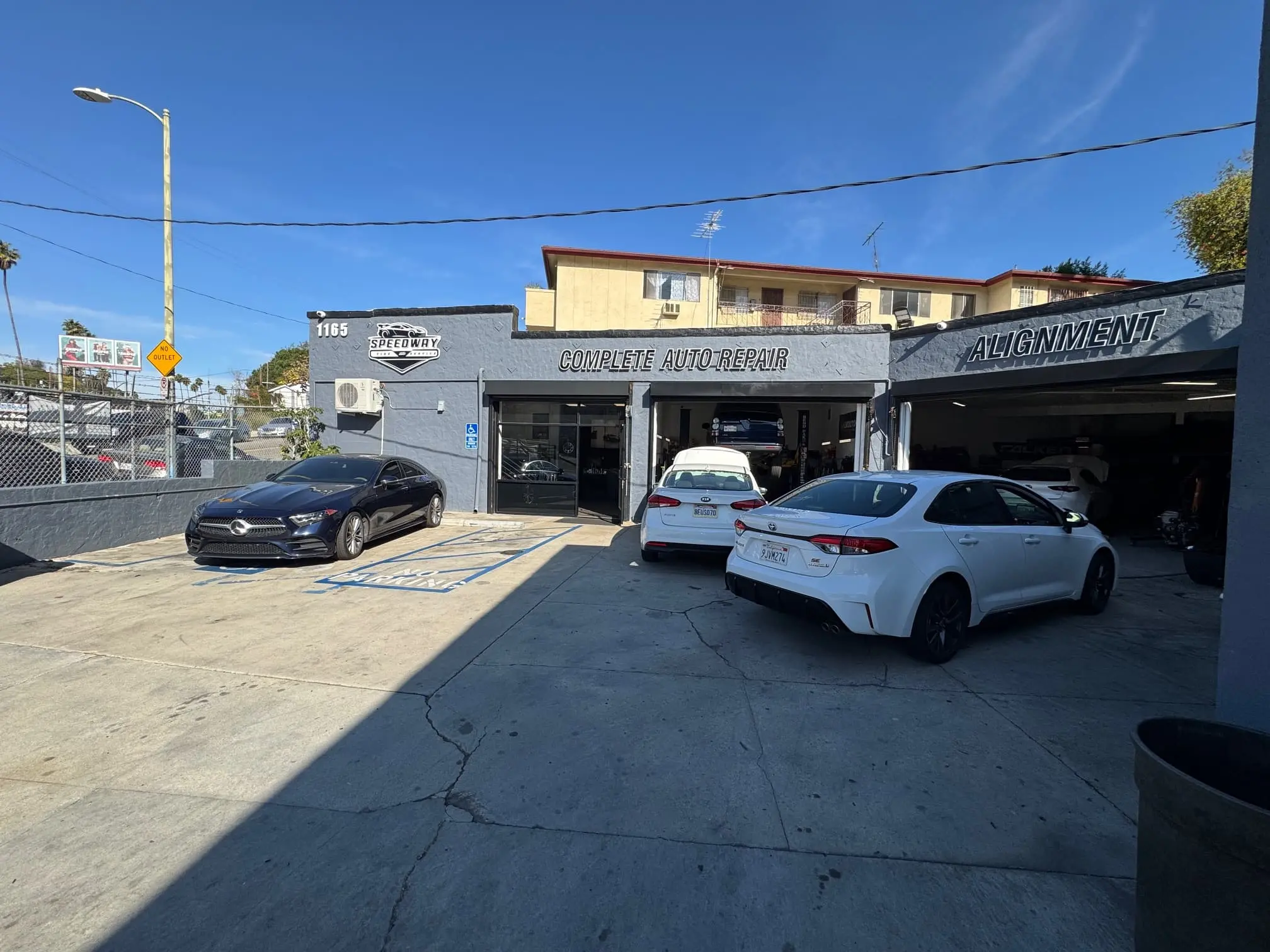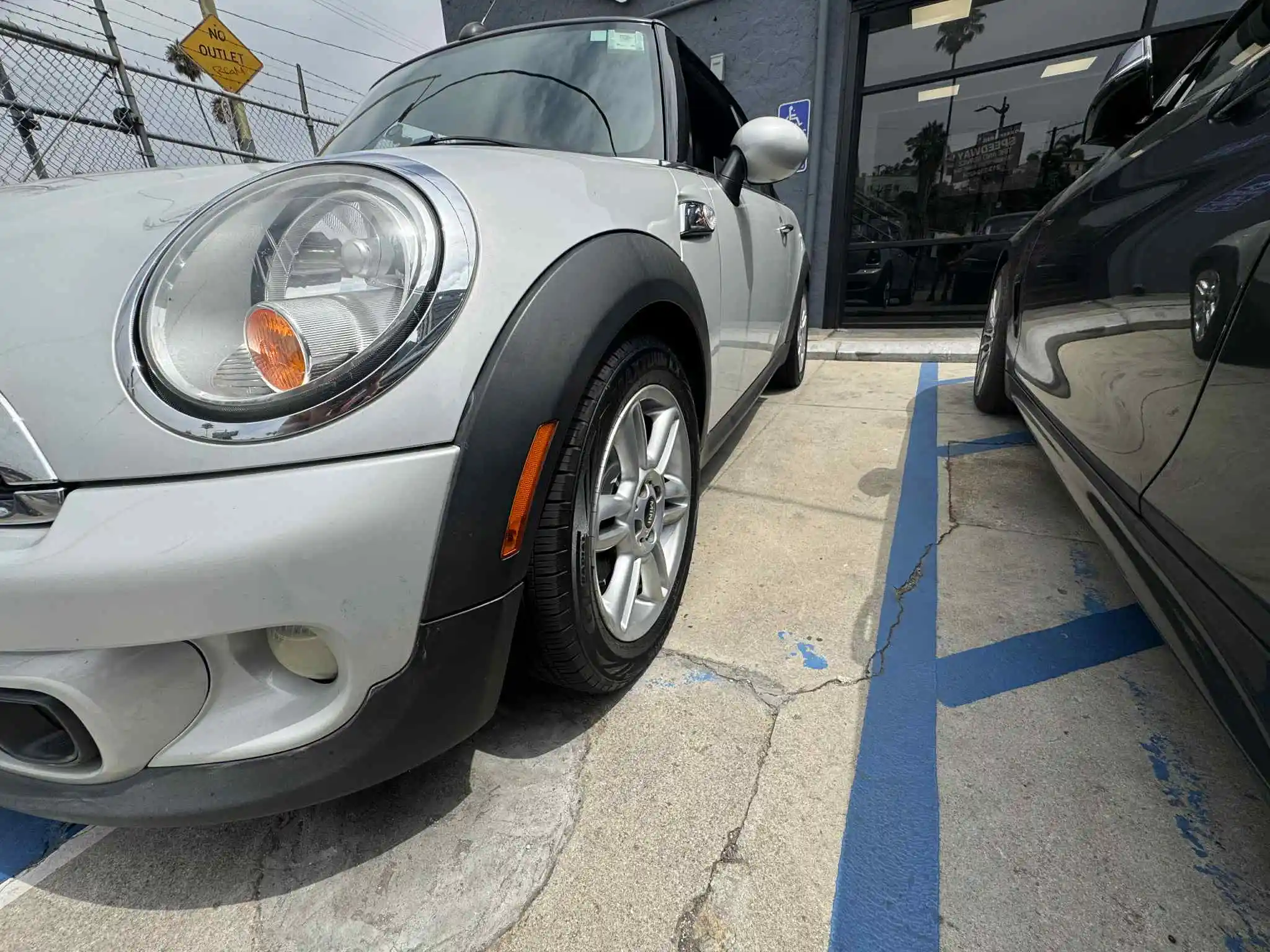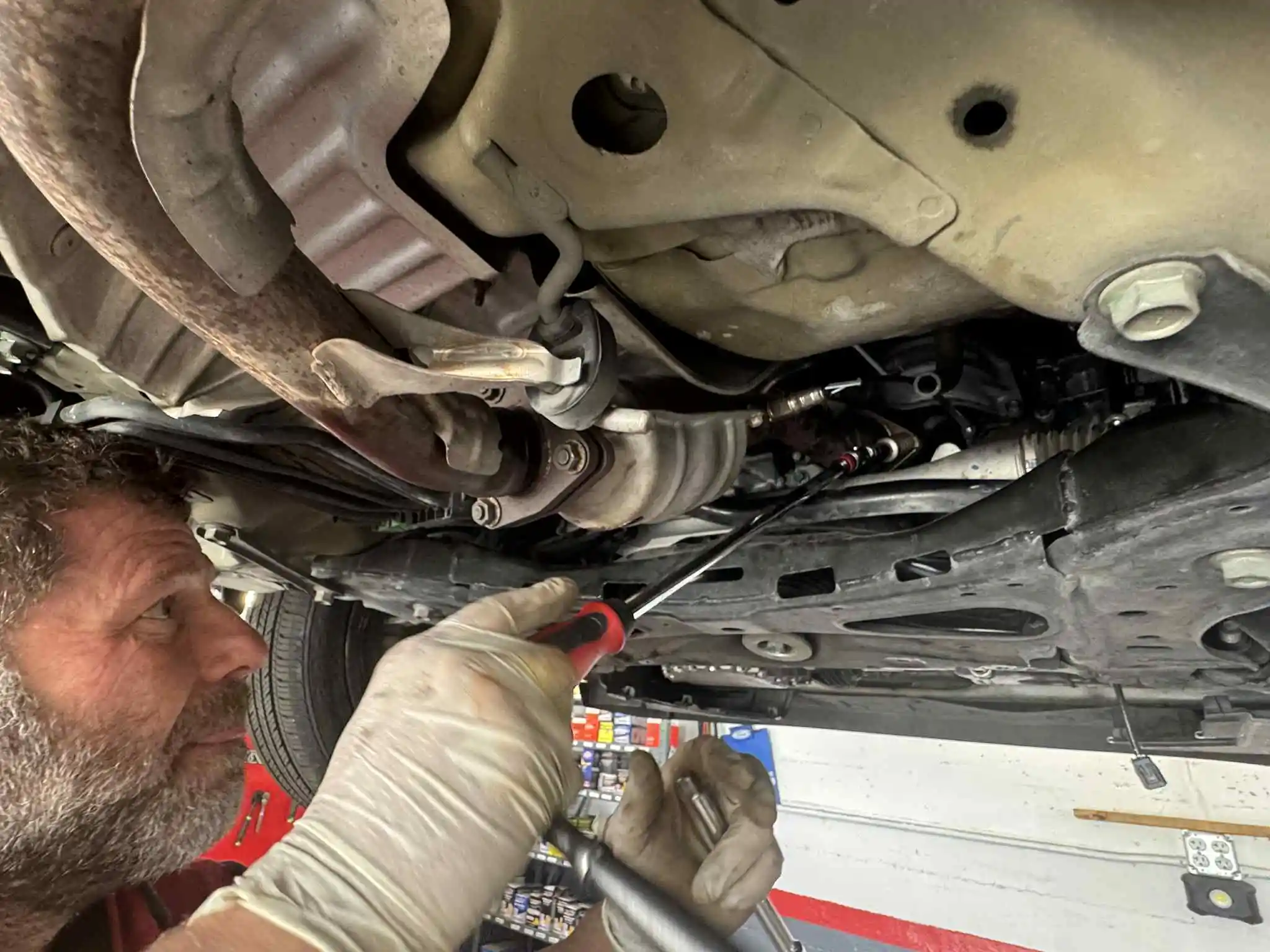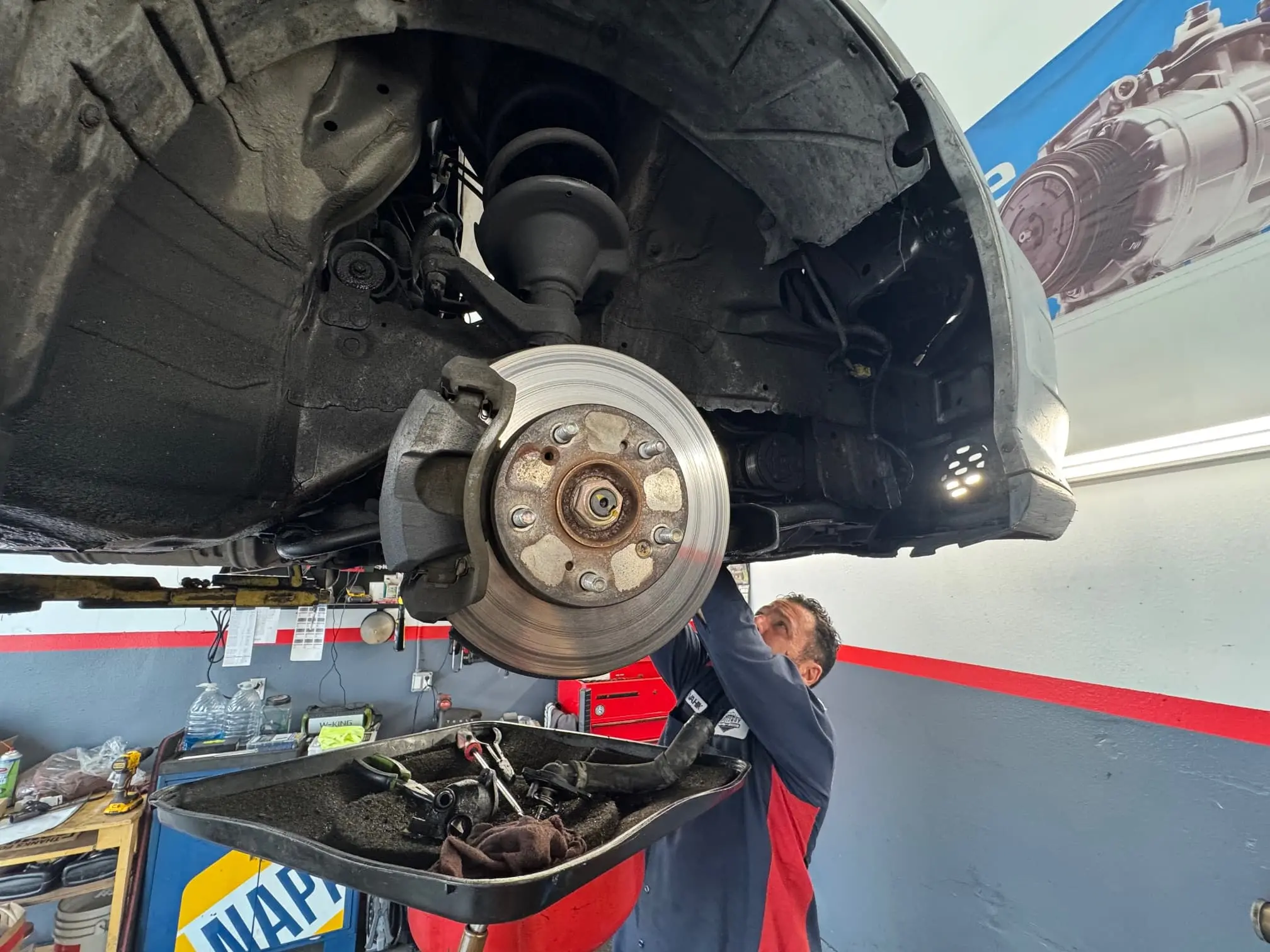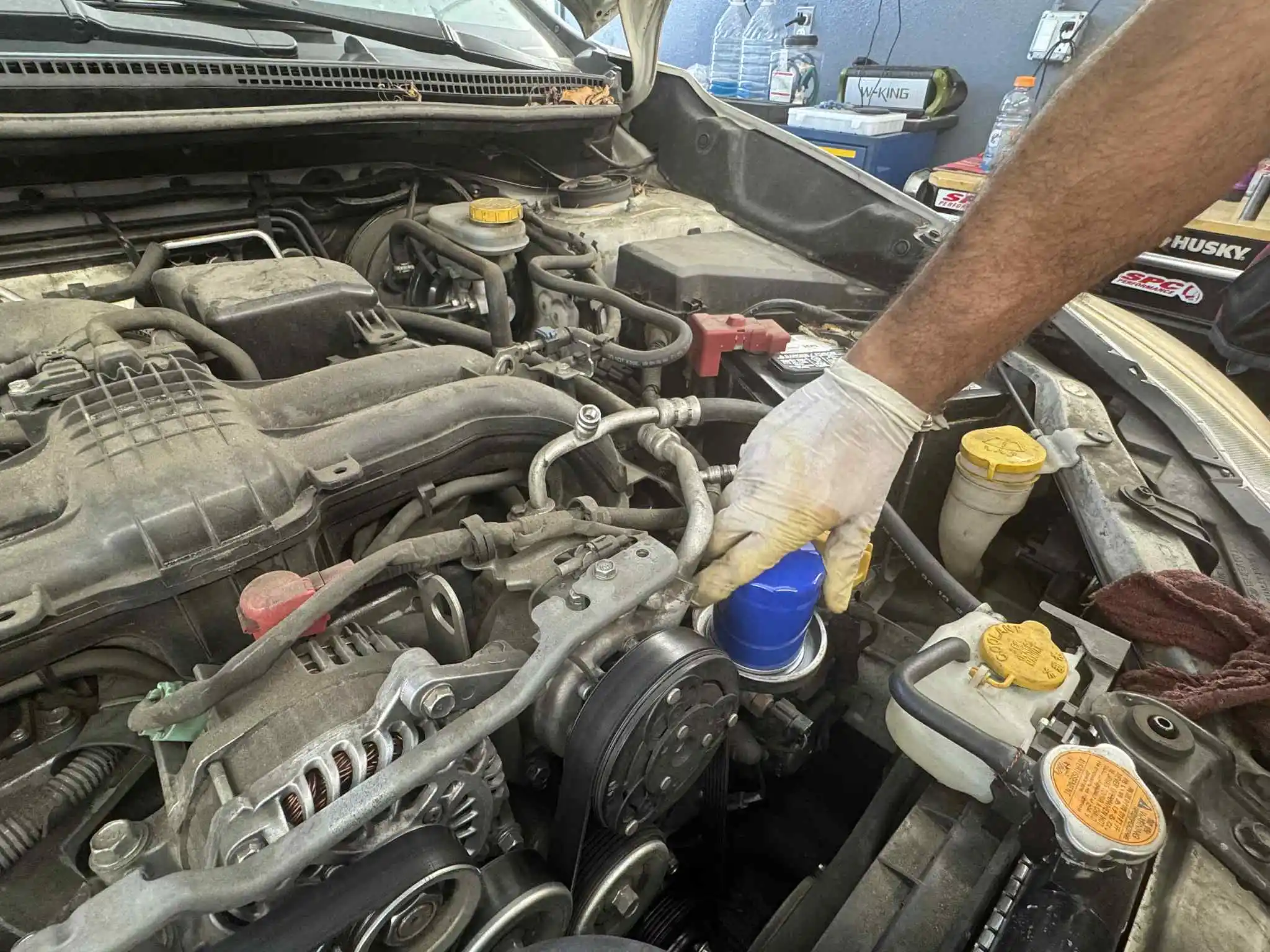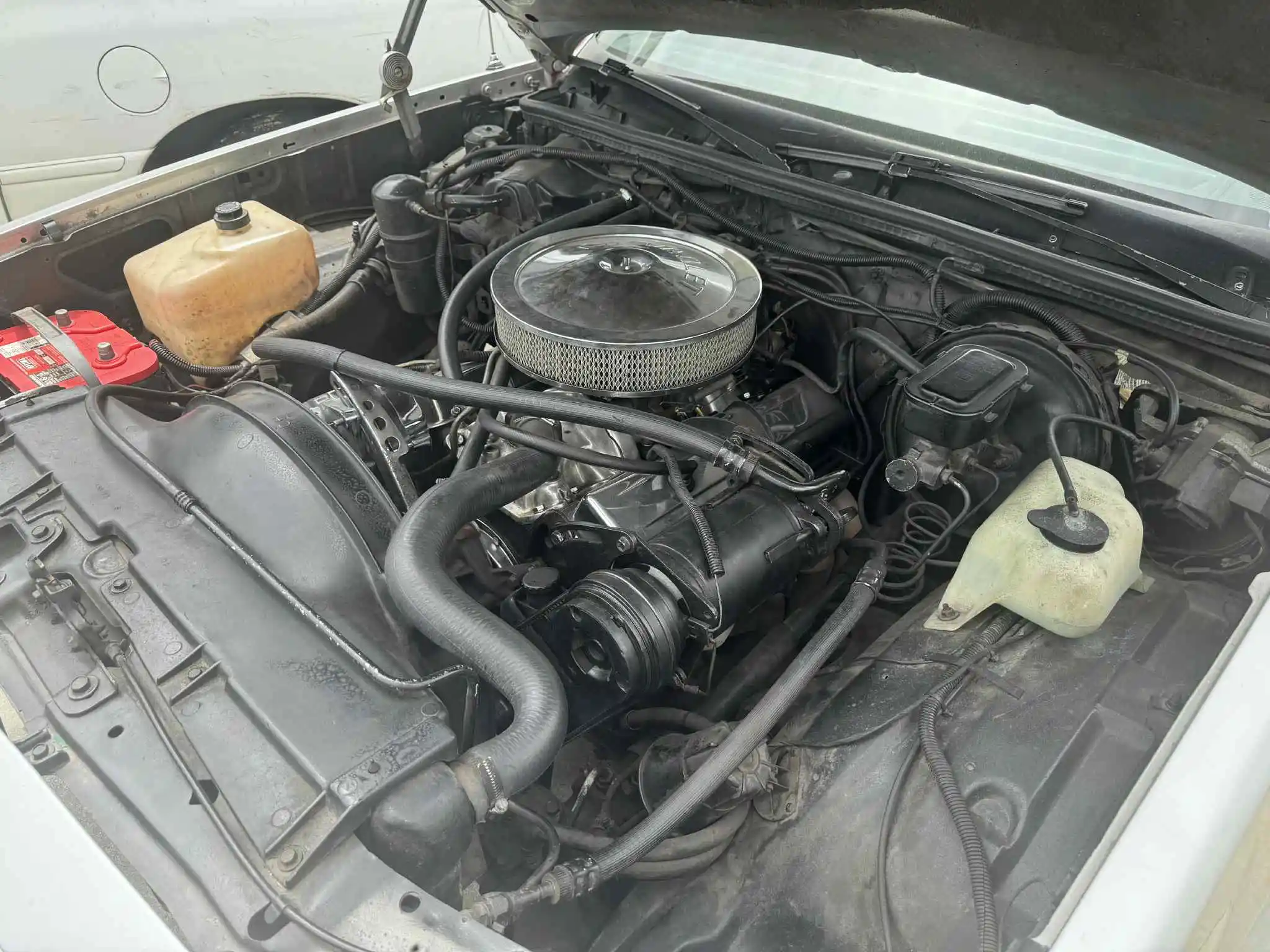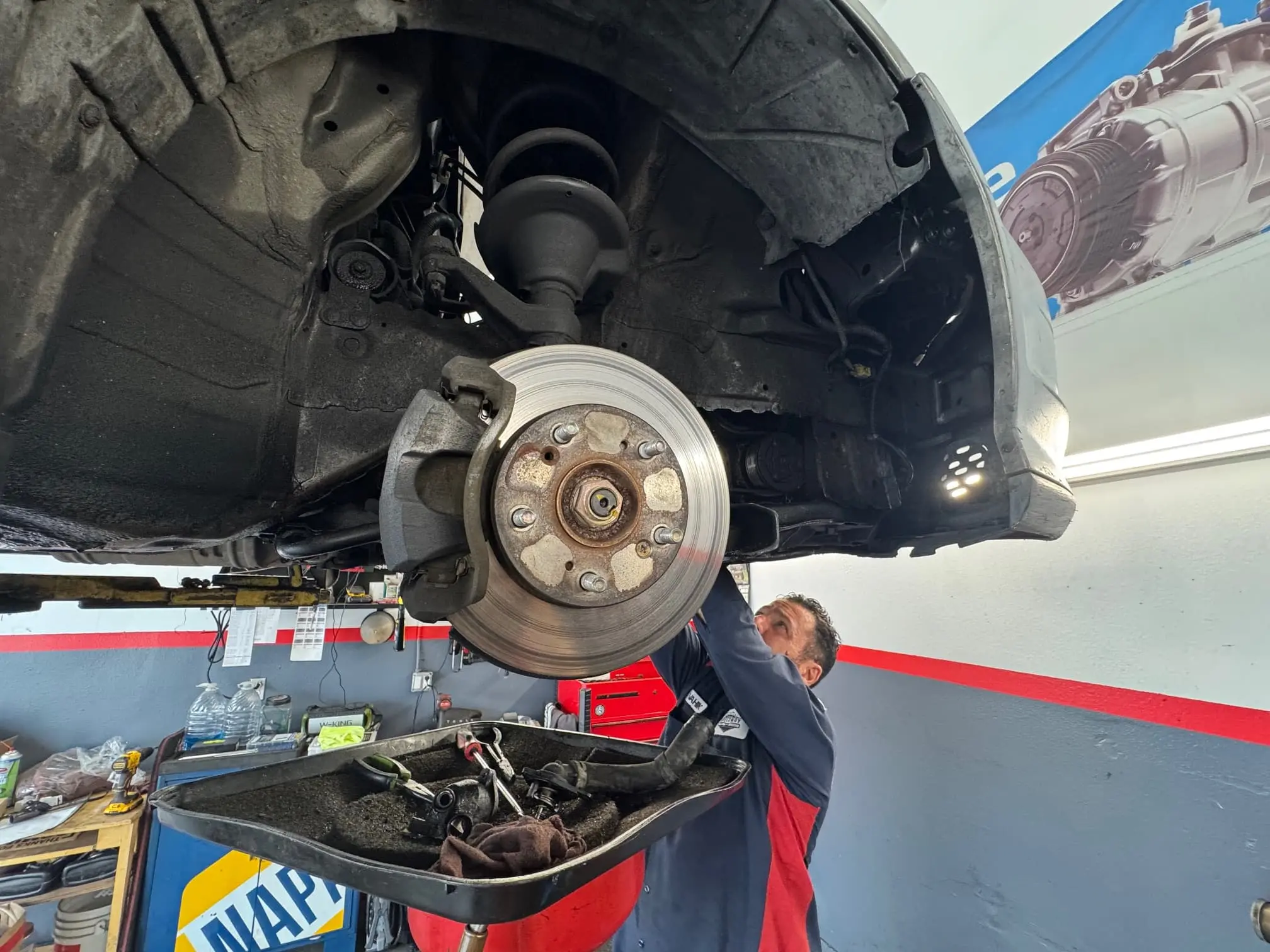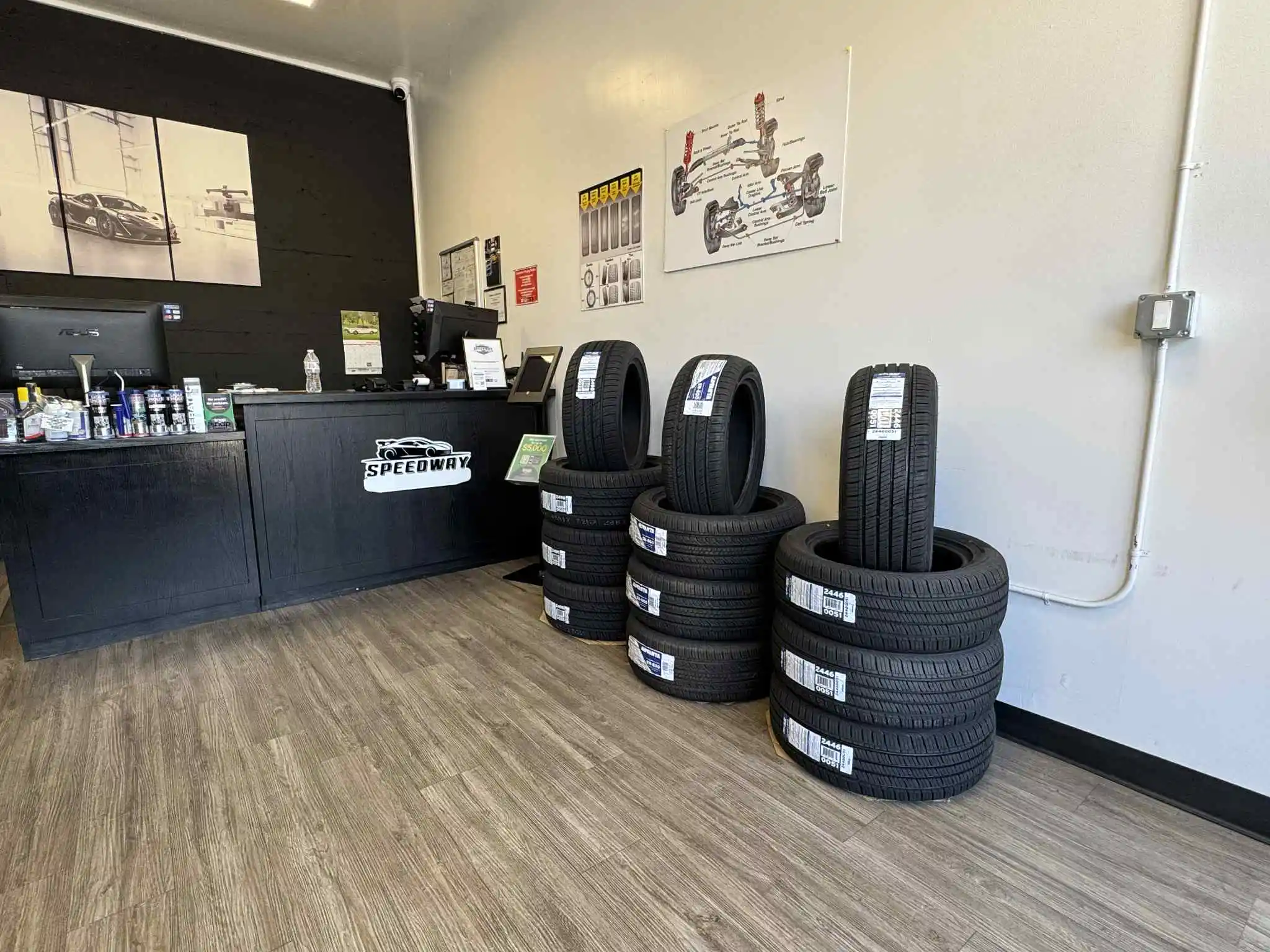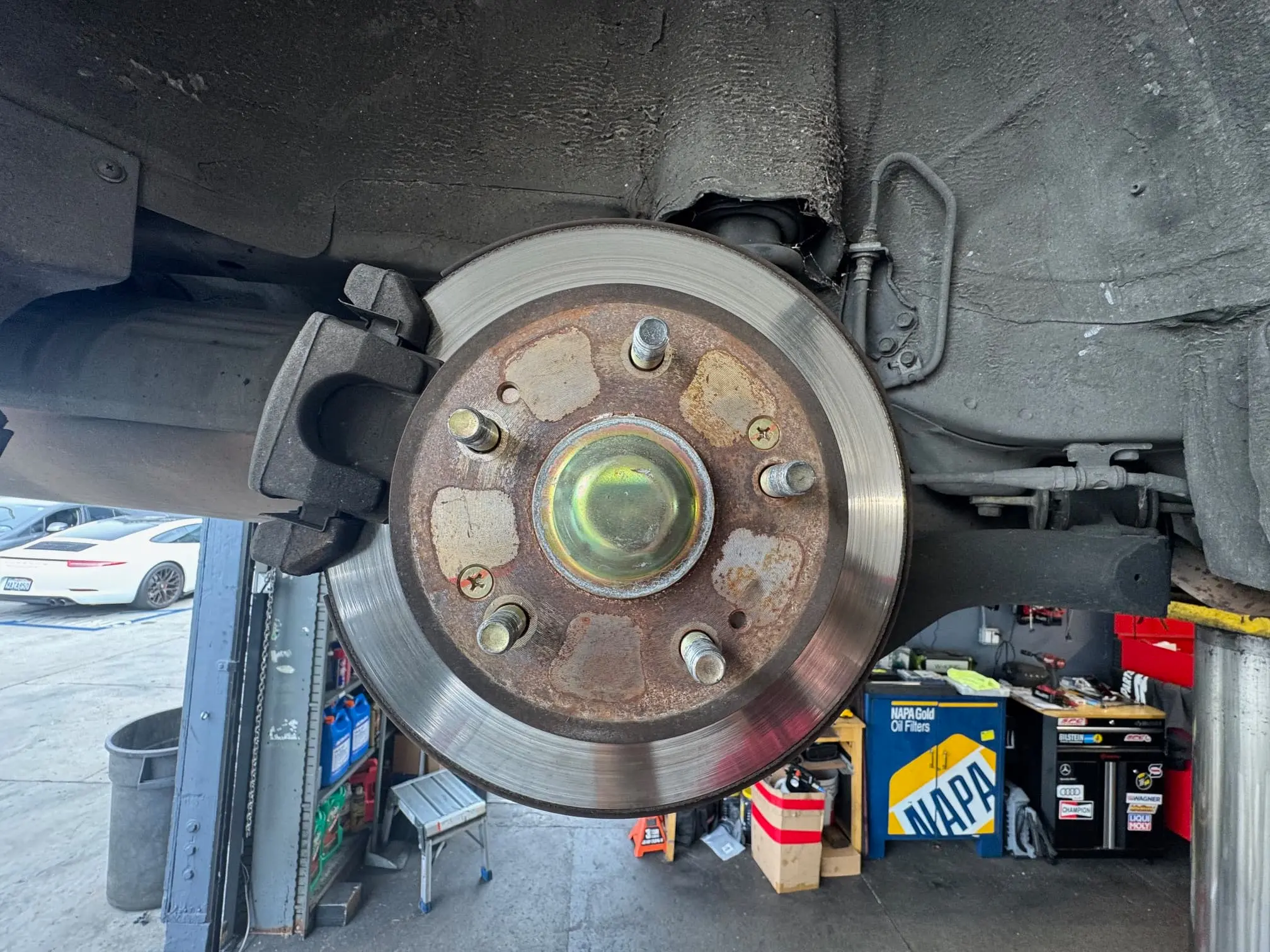Do You Really Need a Fuel Injector Cleaning? (Silver Lake Edition)
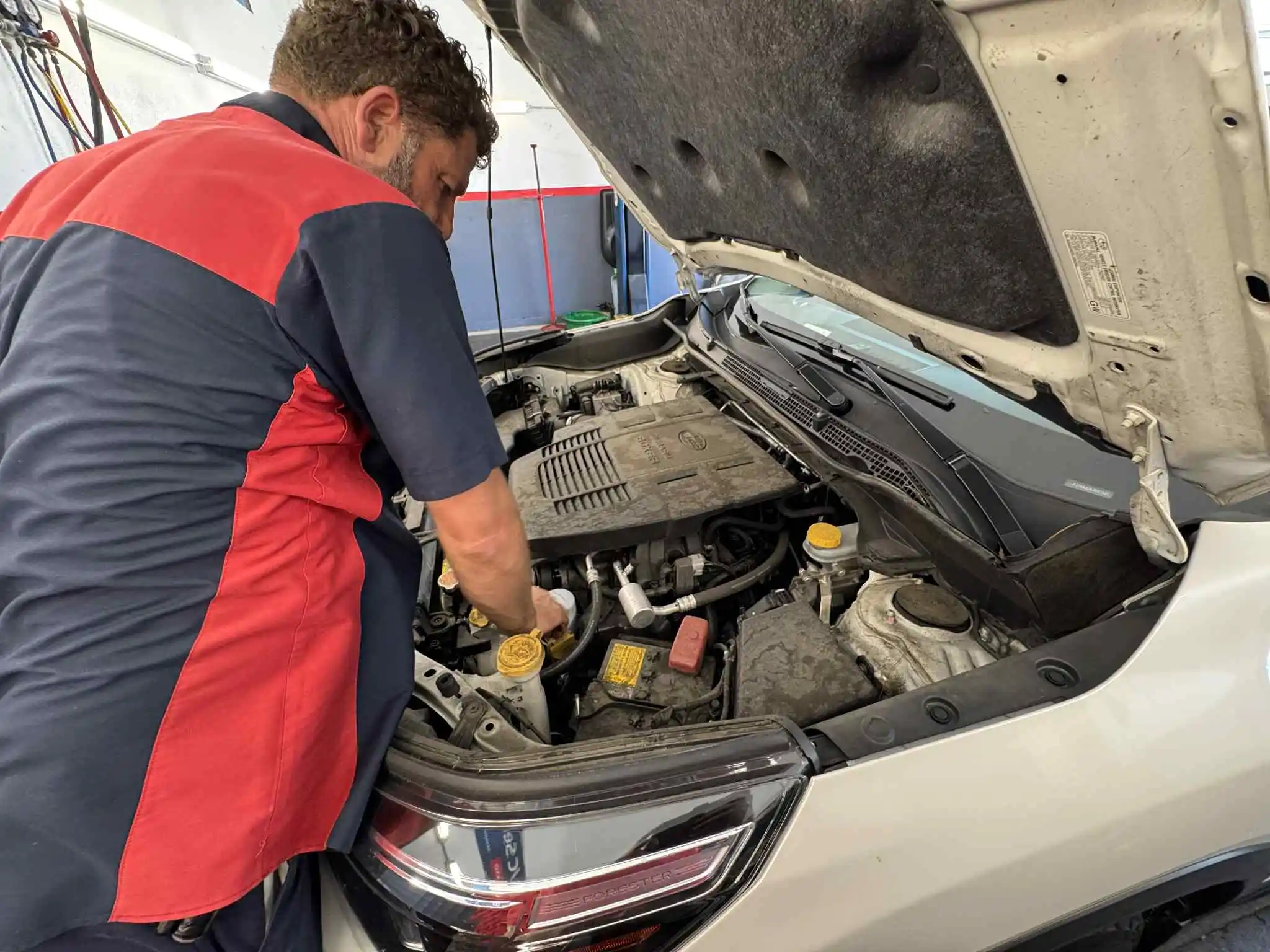
You're sitting in your car at the Sunset Junction, waiting at a red light, when you notice something's off. Your engine feels rougher than usual—there's a slight vibration through the steering wheel, and the idle doesn't sound as smooth as it used to. Or maybe you've noticed that your car hesitates when you accelerate up Silver Lake Boulevard's hills, lacking the responsive power it once had.
When you mention these symptoms during an oil change, the service advisor immediately suggests fuel injector cleaning. The price? Anywhere from $80 to $200. But do you really need it, or is this just an upsell?
For Silver Lake drivers navigating LA's unique driving conditions—stop-and-go traffic on Sunset, short trips around the neighborhood, and occasional freeway runs—understanding when fuel injector cleaning is actually necessary versus when it's unnecessary can save you money while keeping your car running smoothly.
At Speedway Tire & Service, we believe in honest recommendations based on actual vehicle needs, not upselling unnecessary services. Let's explore what fuel injector cleaning actually does, when it's genuinely needed, and how to prevent injector problems in the first place.
What Fuel Injectors Do (And Why They Get Dirty)
Modern fuel injectors are precision components that spray atomized fuel directly into your engine's combustion chambers or intake manifold. They operate under extreme conditions, opening and closing thousands of times per minute, delivering precisely metered amounts of fuel at pressures exceeding 40 PSI (and much higher in direct injection systems).
Over time, fuel injectors can develop deposits from several sources:
Fuel Residue: When you turn off your engine, a small amount of fuel remains in the injectors. This fuel evaporates, leaving behind waxy deposits that can accumulate over time.
Combustion Byproducts: Carbon deposits from incomplete combustion can work their way back into injectors, particularly in direct injection engines where injectors are exposed to combustion chamber conditions.
Fuel Quality: Lower-quality gasoline contains fewer detergent additives, allowing deposits to form more quickly on injector tips and internal components.
Short Trips: Silver Lake's walkable neighborhood means many residents make frequent short trips. Short drives don't allow engines to reach full operating temperature, preventing complete fuel vaporization and accelerating deposit formation.
Stop-and-Go Traffic: Sitting in traffic on Sunset Boulevard or waiting at the Sunset Junction means extended periods of idling, during which fuel doesn't burn as completely, creating more deposits.
When injectors become clogged or coated with deposits, they can't spray fuel in the precise pattern and volume the engine computer expects. This disrupts the carefully calibrated air-fuel mixture, causing performance and efficiency problems.
Real Symptoms of Clogged Fuel Injectors
Before spending money on fuel injector cleaning, you should understand what genuine injector problems actually look like. Not every performance issue is caused by dirty injectors.
Rough Idle
A rough idle is one of the most common symptoms of clogged fuel injectors. When injectors can't deliver fuel properly, the engine receives an inconsistent fuel supply, causing the RPMs to fluctuate and creating a noticeable vibration.
However, rough idle can also be caused by: - Vacuum leaks - Faulty spark plugs or ignition coils - Dirty throttle body - Engine misfires from other causes - Worn motor mounts
If your idle is rough, schedule a diagnostic appointment to identify the actual cause before assuming it's the injectors.
Poor Acceleration
Clogged injectors can't deliver the increased fuel volume needed during acceleration, resulting in poor acceleration or hesitation when you press the gas pedal. This is particularly noticeable when climbing Silver Lake's hills or merging onto the 101 freeway.
Your car might feel sluggish, take longer to respond to throttle inputs, or even stumble when you try to accelerate quickly.
But poor acceleration can also result from: - Clogged air filter - Failing fuel pump - Clogged catalytic converter - Transmission problems - Worn spark plugs
Decreased Fuel Economy
Dirty injectors that don't spray fuel efficiently can cause your engine to run rich (too much fuel) or lean (too little fuel), both of which reduce fuel economy. If you've noticed your MPG dropping significantly without explanation, injector deposits could be the culprit.
However, decreased fuel economy is also caused by: - Underinflated tires - Excessive idling in traffic - Aggressive driving habits - Failing oxygen sensors - Dragging brakes
Engine Misfires
Severely clogged injectors can cause complete misfires—when one or more cylinders fail to fire properly. This creates a noticeable stumble or jerk, particularly during acceleration. Your check engine light will likely illuminate, and diagnostic codes will point to specific cylinder misfires.
Failed Emissions Test
Clogged injectors disrupt the air-fuel mixture, causing incomplete combustion and increased emissions. If your vehicle fails a smog test with high hydrocarbon or CO readings, dirty injectors could be contributing to the problem.
Strong Fuel Smell
If injectors are leaking or stuck open, you might smell raw gasoline, particularly after shutting off the engine. This is a serious problem that requires immediate attention, as it indicates fuel is entering the combustion chamber or intake manifold when it shouldn't.
When Fuel Injector Cleaning Is Actually Necessary
Based on symptoms, mileage, and driving conditions, here's when fuel injector cleaning is genuinely beneficial:
High Mileage Without Previous Cleaning: If your vehicle has 80,000+ miles and has never had injector cleaning, and you're experiencing symptoms like rough idle or poor acceleration, cleaning may help restore performance.
Confirmed Diagnosis: If diagnostic testing (using a scan tool to check fuel trim values, injector balance tests, or cylinder contribution tests) confirms that injectors are not performing properly, cleaning is appropriate.
After Using Low-Quality Fuel: If you've consistently used the cheapest gas available and are experiencing performance issues, your injectors may have accumulated deposits that cleaning can remove.
Pre-Emissions Test: If your vehicle is approaching a smog test and you've noticed performance issues, cleaning injectors can help ensure proper combustion and emissions.
Visible Symptoms: If you're experiencing multiple symptoms (rough idle, poor acceleration, decreased fuel economy) that diagnostic testing links to fuel delivery issues, cleaning is warranted.
When Fuel Injector Cleaning Is Probably Unnecessary
Equally important is recognizing when injector cleaning is likely a waste of money:
Routine Maintenance on Modern Vehicles: If your car has under 60,000 miles, runs smoothly, and you've been using quality gasoline, your injectors probably don't need cleaning. Modern injectors and improved fuel quality have largely eliminated the need for frequent cleaning.
No Symptoms: If your car runs perfectly and you're just getting an oil change, there's no reason to clean injectors "preventatively." This is often when shops recommend unnecessary services.
Recent Cleaning: If injectors were cleaned within the past 30,000 miles and you're using Top Tier gas, they don't need cleaning again unless symptoms develop.
Other Diagnosed Problems: If diagnostic testing shows your rough idle or poor acceleration is caused by spark plugs, ignition coils, or other components, cleaning injectors won't fix those problems.
The Top Tier Gas Solution
The single most effective way to prevent injector deposits and avoid the need for cleaning is using Top Tier gas. This isn't marketing hype—it's backed by extensive research from AAA and major automakers.
What Is Top Tier Gas?
Top Tier is a designation for gasoline that meets enhanced detergent additive standards developed by major automakers including BMW, General Motors, Honda, Toyota, Volkswagen, and others. Top Tier gasoline contains higher levels of detergent additives than the EPA minimum requirements.
The Research
According to a comprehensive study by AAA, the benefits of Top Tier gas are substantial and measurable:
19 Times Fewer Deposits: Engines run on Top Tier gasoline developed 19 times fewer carbon deposits on injectors, intake valves, and combustion chambers compared to non-Top Tier gasoline.
Cleansing Effect: Top Tier gasoline doesn't just prevent deposits—it actively cleans existing deposits. AAA found that switching to Top Tier gas reduced intake valve deposits by 45-72% over just 5,000 miles.
Minimal Price Difference: AAA's price analysis found just a 3-cent per gallon difference between Top Tier and non-Top Tier gasoline—a negligible cost for significant benefits.
Top Tier Stations in Silver Lake and DTLA
Fortunately, Top Tier gasoline is widely available in the Silver Lake area:
- Chevron (multiple locations)
- Shell (multiple locations)
- 76 (multiple locations)
- Mobil (multiple locations)
- Arco (multiple locations)
- Costco (for Costco members)
Using Top Tier gas consistently is the best investment you can make in your fuel system's long-term health. For the cost of about $1-2 per tank, you can prevent the deposits that lead to performance problems and expensive cleaning services.
Professional Fuel Injector Cleaning vs. Additives
If you do need fuel injector cleaning, you have two main options: professional service or fuel additive treatments.
Professional Cleaning
Professional cleaning involves connecting specialized equipment to your fuel system that forces a concentrated cleaning solution through the injectors under pressure. The process typically takes 30-60 minutes and costs $80-200.
Advantages: - More effective than additives for heavily clogged injectors - Immediate results - Can be combined with diagnostic testing to verify improvement - Addresses severe deposit buildup
Disadvantages: - More expensive than additives - Requires professional service - Not necessary for mild deposit buildup
Fuel Additive Treatments
Over-the-counter fuel injector cleaners are added to your gas tank and work gradually as you drive. Quality products from brands like Chevron Techron, Sea Foam, or Red Line cost $10-25 per treatment.
Advantages: - Inexpensive - Easy to use - Effective for mild to moderate deposits - Can be used preventatively - Works throughout the entire fuel system
Disadvantages: - Takes longer to show results (typically one or two tanks) - Less effective for severe clogging - Requires multiple treatments for best results
For most Silver Lake drivers experiencing mild symptoms, starting with a quality fuel additive treatment makes sense. If symptoms don't improve after two treatments, professional cleaning or further diagnosis may be needed.
Preventing Injector Problems: Best Practices for Silver Lake Drivers
Prevention is always better (and cheaper) than cleaning. Here's how to keep your injectors clean:
Use Top Tier Gasoline Consistently: This single practice eliminates most injector deposit problems. The small price premium pays for itself in prevented repairs and maintained performance.
Avoid Cheap Gas: The lowest-price gas often has minimal detergent additives. The few cents per gallon you save isn't worth the long-term cost of deposit buildup.
Drive Your Car Regularly: If possible, take your car on longer drives occasionally to allow the engine to reach full operating temperature. This helps burn off deposits and prevents moisture accumulation in the fuel system.
Keep Your Fuel Tank Above Quarter Full: Running your tank very low can stir up sediment from the bottom of the tank, which can clog fuel filters and injectors.
Replace Fuel Filters on Schedule: Clogged fuel filters can't protect injectors from contaminants. Follow your vehicle manufacturer's recommended replacement intervals.
Address Check Engine Lights Promptly: Ignition or fuel system problems can cause incomplete combustion, accelerating deposit formation. Bring your vehicle in for a diagnostic scan when the check engine light appears.
Consider Periodic Additive Treatments: Even with Top Tier gas, running a quality fuel system cleaner through your tank every 10,000-15,000 miles provides additional protection.
What About Direct Injection Engines?
Many newer vehicles use direct injection (DI) or gasoline direct injection (GDI) engines, which spray fuel directly into the combustion chamber rather than into the intake manifold. These engines are more efficient but more prone to carbon buildup on intake valves because fuel (which normally cleans valves in port injection engines) never touches them.
If you have a direct injection engine (common in many vehicles from 2010 onward), you may need periodic intake valve cleaning in addition to injector maintenance. This is a separate service that typically involves removing intake components and manually cleaning valves or using walnut shell blasting.
Symptoms of intake valve deposits in DI engines include: - Rough idle (especially when cold) - Hesitation during acceleration - Reduced power - Check engine light with misfire codes
If you're unsure whether your vehicle has direct injection, our experienced technicians can advise you on the appropriate maintenance schedule for your specific engine.
The Honest Answer: Do You Need It?
Here's the straightforward truth about fuel injector cleaning:
You probably don't need it if: - Your car runs smoothly with no symptoms - You have under 60,000 miles - You regularly use Top Tier gasoline - You're just getting routine maintenance
You might benefit from it if: - You're experiencing rough idle, poor acceleration, or decreased fuel economy - You have 80,000+ miles and have never had it done - You've consistently used low-quality gasoline - Diagnostic testing indicates fuel delivery issues
You should start with Top Tier gas and additives if: - Symptoms are mild - You want a cost-effective first step - You're looking for preventive maintenance
The fuel injector cleaning service that shops recommend during routine oil changes is often unnecessary, especially on newer vehicles or those regularly fueled with Top Tier gasoline. However, when genuine symptoms exist and diagnostic testing supports the need, cleaning can restore performance and efficiency.
Get Honest Advice at Speedway Tire & Service
At Speedway Tire & Service, we don't recommend services you don't need. If you're experiencing rough idle, poor acceleration, or other symptoms that might indicate fuel system problems, we'll perform diagnostic testing to identify the actual cause before recommending any service.
Our approach is simple: diagnose first, recommend only what's necessary, and explain why. If your injectors genuinely need cleaning, we'll explain the symptoms, show you the diagnostic data, and provide options. If they don't need cleaning, we'll tell you that too—and help you address whatever is actually causing your symptoms.
Located at 1165 West Sunset Blvd, we're conveniently positioned to serve Silver Lake, Echo Park, and Downtown LA. Whether you need diagnostic services, fuel system maintenance, or just honest advice about what your car actually needs, we're here to help.
If you're experiencing performance issues or have questions about whether fuel injector cleaning is right for your vehicle, contact us or call (213) 250-4254 to schedule a diagnostic appointment. We'll give you straight answers based on your vehicle's actual condition, not a sales script.
Your car deserves quality fuel and honest service. We provide both.
Looking for an honest Auto Repair Shop in Los Angeles? Call Speedway Tire and Service Today
Whether you’re driving through LA traffic or cruising the freeways, your car deserves expert care. Located in Los Angeles, Speedway Tire and Service offers reliable oil changes, brake repairs, tire services, and more—all backed by experienced technicians and honest pricing.
